Socialist democracy is both the goal and the driving force for the country's development.
From the study of democratic regimes in history and the practice of leading the socialist revolution, the founders of Marxism-Leninism believed that democracy is the product and the result of the class struggle for the progressive values of humanity, the form of state organization of the ruling class and one of the operating principles of political and social organizations. In socialist democracy, state power belongs to the entire people and society; the state apparatus must serve the people and society. Accordingly, only when all state power belongs to the people can it be fundamentally guaranteed that the people enjoy the right to mastery as a right.
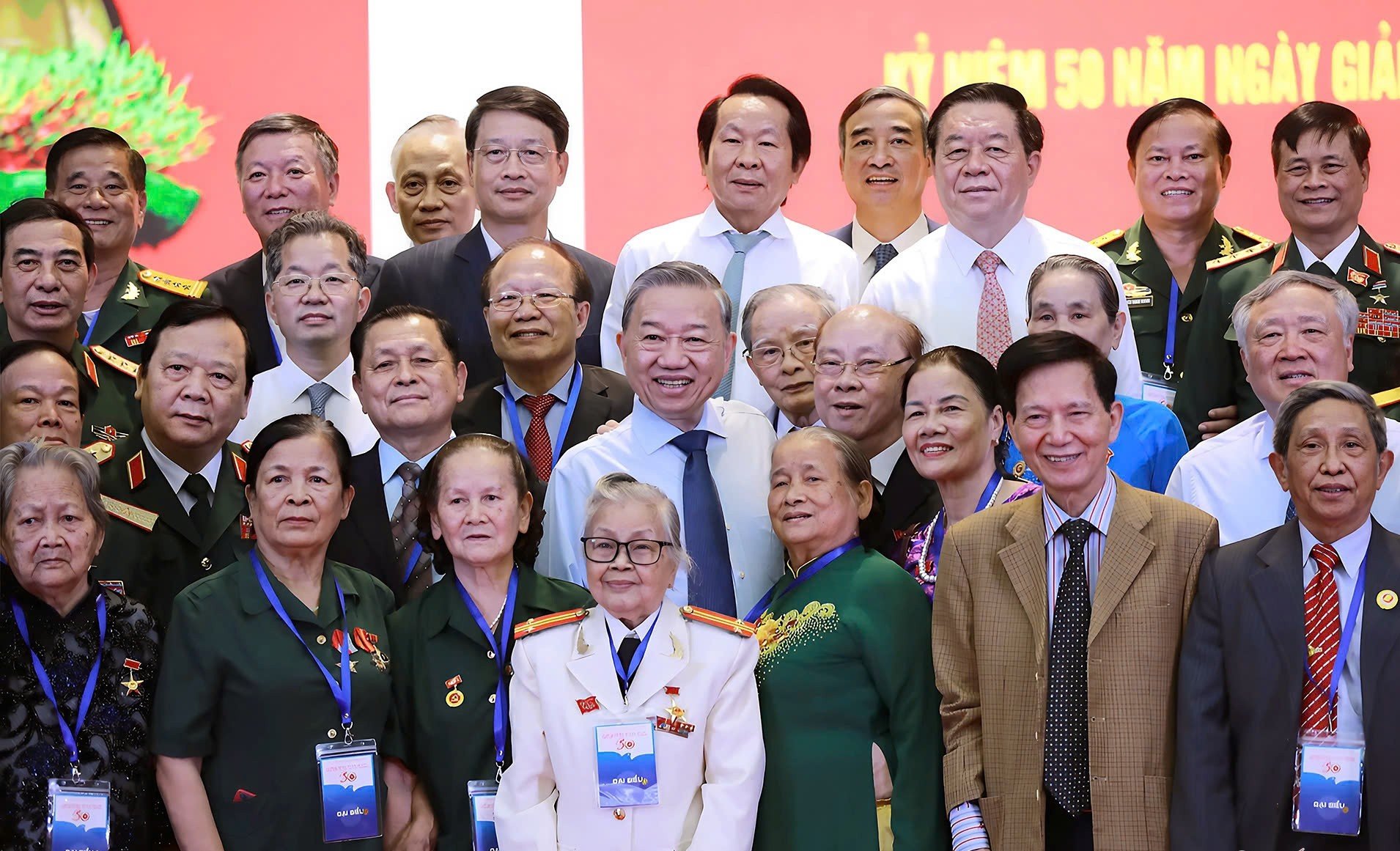
Democracy as a form of political institutional organization, a form or form of state, is a historical category, born and developed closely with the state and disappears when the state disappears. However, democracy as a social value is an eternal category along with the existence and development of human society. As long as humans and human society exist, as long as human civilization exists, democracy will still exist as a common value of humanity. In general, in socialist democracy, people are the subjects of society in a comprehensive way: masters of the state, society and masters of themselves; possessing all creative capacities as the true subjects of society. On the other hand, democracy must cover all areas of life, from democracy in economics and politics to democracy in society and cultural, spiritual and ideological life, in which economics and politics are two essential areas, directly expressing human rights (human rights) and civil rights (civil rights) of the people.
President Ho Chi Minh determined to develop democracy in the spirit of: 1- Democracy is first of all a common human value. He affirmed that "democracy is the people being the master and the people being the masters". He affirmed: "Our country is a democratic country, the highest position belongs to the people, because the people are the masters" (1) ; 2- When considering democracy as a political institution, a social regime, he affirmed: "Our regime is a democratic regime, that is, the people are the masters, and the Government is the loyal servant of the people" (2) . He believed that a democratic government means a government owned by the people; and once our country has become a democratic country, "we are the masters", then democracy is "the people being the masters" and "when the people are the masters, what else are the Presidents, ministers, deputy ministers, and committee members doing? Being servants. Being servants of the people, not revolutionary officials" (3) .
From the above viewpoints, the Communist Party of Vietnam advocates building a socialist democratic regime, expanding and promoting the people's mastery. Our Party affirms that "in all its activities, the Party must thoroughly grasp the idea of "taking the people as the root", building and promoting the mastery of the working people" (4) .
Thoroughly grasping and promoting the thought of President Ho Chi Minh: "Our country is a democratic country" (5) , in the Platform for national construction in the transitional period to socialism ( supplemented and developed in 2011 ), the Party affirmed that the socialist regime that the Vietnamese people build is a society "owned by the people" (6) , in which the right to mastery over all areas of social life belongs to the people, the people are the masters and masters over all areas of social life according to the principle that the Communist Party - the vanguard of the working class, the working people lead and implement political unity. The Party and the State must create appropriate scientific mechanisms, policies and laws; on the other hand, the people must strive, practice, and improve their understanding of democracy, methods of practicing democracy and the capacity to practice democracy. The people exercise their mastery in direct and indirect forms, through organizations in the political system, the core of which is the socialist rule of law state of the people, by the people and for the people, on the basis of a socialist economy with the state economy playing the leading role. The state “represents the mastery of the people; at the same time is the organizer of the implementation of the Party's guidelines; has mechanisms for the people to exercise their direct mastery and representative democracy in all areas of social life, and participate in social management” (7) .
In the process of implementing the renovation process, the Party has deeply realized that in order to advance to socialism, along with the task of socio-economic development, building an advanced Vietnamese culture imbued with national identity, ... it is necessary to successfully build socialist democracy. Because "democracy is both the goal and the driving force of development" (8) , without socialist democracy there is no socialism.
As the pinnacle in the development of democracy, a democracy that is different in nature and more highly developed than bourgeois democracy, socialist democracy is the crystallization of all democratic values achieved in history and has new progressive democratic values. In Vietnam, during the period of renovation, the democratic consciousness of citizens and society, the level and capacity of people to be masters have been gradually raised; the guarantee of rights and obligations, interests and responsibilities of subjects in society have been more specifically legalized and implemented step by step with positive results. On the other hand, people participate more responsibly and effectively in the building of the Party's guidelines, policies and laws of the State.
The practice of building socialist democracy, ensuring that real power belongs to the people today
The August Revolution of 1945 succeeded, the government was in the hands of the people, establishing the Democratic Republic of Vietnam. The Communist Party of Vietnam and President Ho Chi Minh affirmed: “OUR COUNTRY IS A DEMOCRATIC COUNTRY. All benefits are for the people . All powers belong to the people . The work of innovation and construction is the responsibility of the people . The cause of resistance and nation building is the work of the people . The government from the commune to the central government is elected by the people . The organizations from the central to the commune are organized by the people . In short, power and strength are in the people ” (9) .
Thus, right from the first day of the country's founding, the Party determined that "our regime" would follow a democratic regime. Through the development process, the viewpoint on building socialist democracy has always been steadfast, and at each stage it has been supplemented and adjusted to suit the actual and specific situation. At the 13th National Party Congress, the issue of socialist democracy was emphasized: "Practice and widely promote socialist democracy, the people's right to mastery and the role of the subject; promote the strength of great national unity; consolidate and enhance people's trust; strengthen social consensus; continue to innovate the content and methods of operation of the Fatherland Front and socio-political organizations" (10) .
Thus, the construction of socialist democracy with complementary and developing viewpoints is carried out in different stages of development, but in essence, the methods and motivations for national development are unified, affirming that all state power belongs to the people; the people are the masters and the people are the masters. The people exercise their rights as masters and the masters under the leadership of the Party and the management of the State throughout the development process.
The Vietnamese revolutionary practice, especially over nearly 40 years of renovation, has clearly and vividly demonstrated the progress made in promoting democracy, as well as building socialist democracy by the Party, State and people. The Party clearly stated that in order to build socialist democracy, promoting the people's true mastery is an important task, because socialist democracy is one of the true values of socialism and is also the goal and path that President Ho Chi Minh, the Party and the Vietnamese people have chosen, steadfastly and persistently pursued. Without building socialist democracy, there will be no socialism. This requires "a political system in which power truly belongs to the people, by the people and serves the interests of the people, not just for a wealthy minority" (11) . That political system must “aim towards progressive, humane values, based on the common interests of the whole society in harmony with the legitimate interests of the people…” (12) . It must be through the operating mechanism of the Party leading, the State managing, and the people being the masters to promote the people’s mastery. Because, this is “the relationship between subjects with unified goals and interests; all Party guidelines, policies, laws and activities of the State are for the benefit of the people, taking the happiness of the people as the goal to strive for” (13) . This general mechanism is one of the “ten major relationships” that need to be strengthened, grasped and resolved in the current period.
Institutions for implementing people's mastery rights have been gradually established, concretized and put into practice. The democratic consciousness of citizens and society and the people's mastery level have been significantly improved. Many policies and measures to promote the active and proactive role of the people have been effectively implemented. People's trust in the Party and the State has been strengthened. In the context of the COVID-19 pandemic, the superiority of socialist democratic institutions has been promoted along with the strength of great national unity and the correct leadership of the Party.
Firstly , democracy in the economic field has made important progress, which is the basis for ensuring democracy in other areas of social life. The policy of building and developing a socialist-oriented market economy with many forms of ownership, many economic sectors, forms of business organization, forms of distribution, equality before the law, operating according to the law, long-term development, cooperation and healthy competition, has created the foundation for practicing and promoting democracy. Vietnam's economy has grown continuously since 1986. The scale of GDP has been constantly expanding, at current prices in 2024 it is estimated to reach 11,511.9 trillion VND, equivalent to 476.3 billion USD. GDP per capita in 2024 at current prices is estimated at 114 million VND/person, equivalent to 4,700 USD, an increase of 377 USD compared to 2023. Labor productivity of the entire economy in 2024 at current prices is estimated at 221.9 million VND/worker (equivalent to 9,182 USD/worker, an increase of 726 USD compared to 2023) (14) .
Second , in the political field, democracy in the Party, State, organizations and society has been promoted effectively and positively. The protection of citizens' legitimate rights and interests and the handling of violations of democratic rights have been given more attention. The political system has been innovated in the direction of streamlining, compactness, effectiveness and efficiency; democratization, transparency in the method of operation, thereby social democracy has been increasingly promoted and effectively promoted. In addition, the Fatherland Front and organizations have gradually innovated the content and method of operation towards expanding and promoting democracy, especially the role of social supervision and criticism. Social and socio-professional organizations have met the diverse needs of the people. Forms of implementing democracy have been gradually expanded, innovated and implemented more effectively.
Third , democracy in the cultural and social fields is promoted and implemented more effectively. The legal system, mechanisms, policies and effective solutions in the fields of health, culture, education, sports, technology, environment, etc. are increasingly improved and meet the demands of life. Many legal documents have specified the basic rights and obligations of citizens, more suitable to the conditions of socio-economic development. The principle that all citizens are equal before the law is legalized and gradually put into practice. Social justice and equality have made remarkable progress. The guarantee of human rights and civil rights is increasingly concerned and promoted with positive effects.
Besides positive results, the promotion of socialist democracy in Vietnam still has some limitations:
Firstly , “The people’s right to mastery is sometimes violated in some places; there are still manifestations of formal democracy, separating democracy from discipline and law” (15) . In some places, the awareness and practice of democracy and the implementation of grassroots democracy are still formal, the people’s right to mastery is not respected and promoted, and there is no adequate mechanism to ensure that the people can exercise their role as the subject of power.
Second , the principle of “collective leadership, individual responsibility” in reality in some places falls into formality. There are still situations of abuse of power, bureaucracy, and authoritarianism causing trouble for the people by some public agencies and officials. The slow institutionalization of the Party's policies into laws and regulations... The legal system of Vietnam is still not uniform, causing difficulties for law enforcement agencies and the people, affecting the practice of democracy in society... The above-mentioned limitations must be overcome soon so that the principle of power belongs to the people and the practice of people's mastery in practice becomes increasingly widespread and substantial.
Third , the institutions to better promote the people's mastery still have shortcomings. Some laws have been issued, but have not yet been widely implemented. Some state administrative agencies and authorities at all levels have not implemented legal documents well, such as in the fields of planning, planning management, land management, resources, minerals, compensation, site clearance, resettlement organization, etc.
The causes of the above limitations are that the political system's operations are not truly synchronous; the conditions for people to be masters are not adequate; the lack of exemplary democracy in the organization and operations of a number of party organizations, governments, and unions, especially the state of corruption, waste, degradation in political ideology, ethics, and lifestyle of a number of cadres and party members; there is still a lack of democratic awareness, taking advantage of democracy... These limitations have greatly affected the nature, goals, and motivations of socialist democracy in particular, and the general goals of Vietnamese socialism in general, and need to be focused on and overcome.
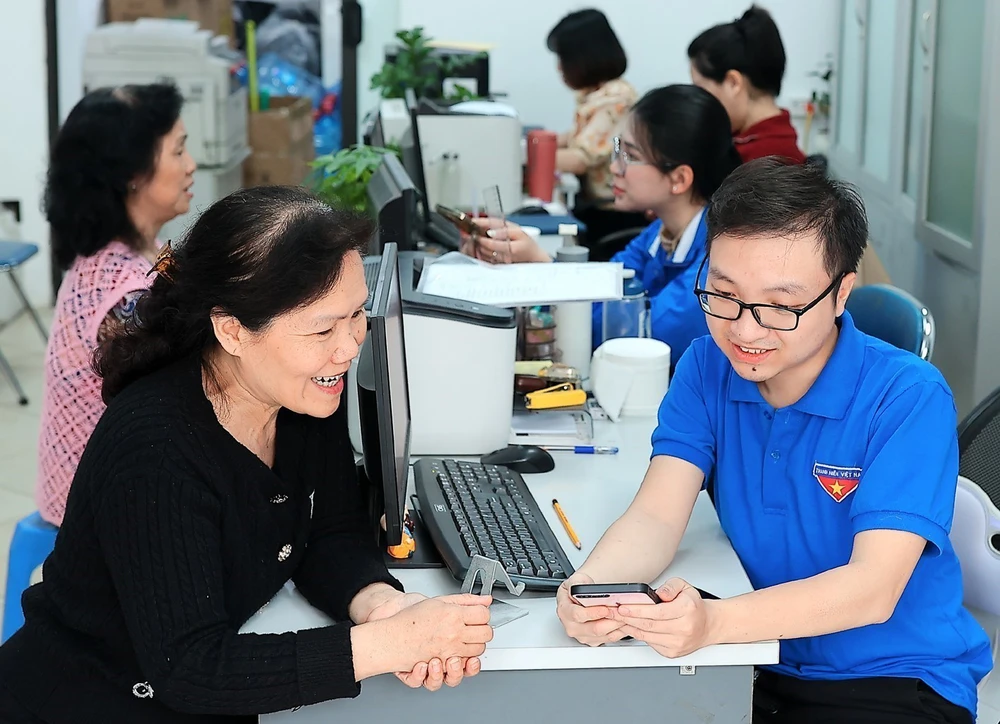
To promote socialist democracy in the new context
Firstly, consistently implement the goal of respecting, protecting and promoting the people's right to mastery, all for the sake of national independence, democracy, freedom and happiness of the people.
This is an important and comprehensive goal in building a socialist rule-of-law state. Implementing this content well will ensure that the State is truly a State of the people, by the people and for the people. Accordingly, it is necessary to be proactive in selecting and implementing effective democratic mechanisms and forms so that people have the opportunity and conditions to participate in important activities of the country, so that people can decide on important tasks in the cause of building and defending the Fatherland. Building a socialist rule-of-law state must aim to ensure adequate conditions for people to exercise their mastery at the grassroots level; only then can the power of the State at the local level be consolidated and strengthened.
Second, promote the leadership role and innovate the Party's leadership and governance methods for the rule of law State of the people, by the people and for the people.
The 13th National Party Congress documents emphasize: “Improving the effectiveness and efficiency of state management and the capacity to create development” (16) . A strong state with effective and efficient management is a demonstration of the Party’s leadership and governing capacity. Building a creative state, an honest, active, serving government, a modern, professional, disciplined, open, transparent administration (17) … Building modern, clean, effective, efficient, democratic, strict judicial institutions, enhancing unity, synchronization, feasibility, and stability. Strengthening the capacity of people and businesses to easily access the law and justice" (18) with low compliance costs and international competitiveness of the legal system. In the coming time, continue to perfect the characteristics of the socialist rule of law state; focus on leadership to concretize and institutionalize the Party's guidelines and Platform into State policies and laws. The Party's leadership over the State and society is a decisive factor in ensuring that the socialist rule of law state of Vietnam is truly a state of the people, by the people and for the people.
Third, continue to build and perfect the legal system while focusing on promoting moral education and overcoming limitations in State operations.
Thoroughly grasping and applying President Ho Chi Minh's democratic ideology in building a socialist rule-of-law state, it is necessary to closely combine "rule by virtue" and "rule by law", combine "construction" and "resistance" to build a clean and strong state. In particular, it is necessary to focus on education, training and improving revolutionary ethics for cadres and party members. Resolutely and uncompromisingly fight against individualism, uphold the spirit of the rule of law; resolutely and persistently fight to gradually push back manifestations of degeneration, corruption, embezzlement and waste of cadres, party members and civil servants. Focus on building a cadre team at all levels in the state apparatus that must be truly close to the people, know how to listen to the opinions and aspirations of the people, truly love, respect, trust and value the people.
Fourth, constantly improve people's intellectual level and at the same time have appropriate policies to care for people's lives.
The improvement of the people's intellectual level and the assurance of their living conditions will contribute to creating a comprehensive strength for the cause of national construction and defense, and at the same time, it is a prerequisite for promoting the role of the people as masters. The Party and the State need to set out appropriate policies to improve people's intellectual level, care for people's lives, ensure social policies, especially social welfare, social security, human security, etc. In addition, it is necessary to pay attention to caring for people's lives, with specific measures: Taking care of people's lives to be better and better both materially and spiritually; identifying investment in education and health as a strategic task to improve the quality of people's lives; finding appropriate directions to develop rural transport infrastructure, having solutions to increase rich households, reduce poor households, build the image of prestigious cadres with the people, etc.
Fifth, focus on improving the quality of cadres, party members, civil servants and public employees in state power agencies.
According to President Ho Chi Minh, cadres are the root of all work, good cadres will make work go smoothly, bad cadres will make revolutionary work difficult and hinder. The contingent of cadres, party members, civil servants and public employees in state power agencies is a force representing the people, trusted and entrusted by the people to participate in the management and operation of the state apparatus. Accordingly, it is necessary to focus on improving the quality of the contingent of cadres, party members, civil servants and public employees in state power agencies in all aspects, such as political qualities, ethics, style, leadership and management capacity so that they can truly be "truly loyal servants of the people" (19) . At the same time, it is necessary to focus on training and fostering a contingent of state civil servants with ethics, professional working style, good expertise and skills, striving to contribute, be dedicated and wholeheartedly serve the people, and build a strong and comprehensive socialist rule-of-law state.
Sixth, promoting socialist democracy is associated with strengthening the rule of law, ensuring social discipline, promoting civic responsibility, and maintaining discipline and order.
To do this well, it is necessary to condemn extreme and superficial democratic manifestations. Strictly handle acts of taking advantage of democracy to affect political security, social order and safety, and acts that violate democratic rights and people's mastery. Timely and strictly handle organizations and individuals who take advantage of democracy to cause internal disturbances, destabilize politics and society, or violate democracy and harm people's mastery./.
----------------------
(1) Ho Chi Minh: Complete Works, National Political Publishing House Truth, Hanoi, 2011, vol. 7, p. 434
(2) Ho Chi Minh: Complete Works, op. cit., vol. 9, p. 382
(3) Ho Chi Minh: Complete Works, op. cit. , vol. 10, p. 572
(4) Documents of the Party Congress in the renovation period , National Political Publishing House, Hanoi, 2005, p. 28
(5) Ho Chi Minh: Complete Works, op. cit., vol. 6, p. 397
(6) Documents of the Party Congresses in the renovation period , Part II (Congresses 10, 11, 12), National Political Publishing House Truth, Hanoi, 2019, p. 18
(7) Nguyen Phu Trong: Some theoretical and practical issues on socialism and the path to socialism in Vietnam , National Political Publishing House Truth, Hanoi, 2022, p. 28
(8) Documents of the 11th National Congress of Delegates , National Political Publishing House Truth, Hanoi, 2011, p. 70
(9) Ho Chi Minh : Complete Works, op. cit., vol. 10, p. 232
(10) Documents of the 13th National Congress of Delegates , National Political Publishing House Truth, Hanoi, vol. II, p. 332
(11) Nguyen Phu Trong: “Some theoretical and practical issues on socialism and the path to socialism in Vietnam”, Electronic Communist Magazine , May 16, 2021, https://www.tapchicongsan.org.vn/media-story/-/asset_publisher/V8hhp4dK31Gf/content/mot-so-van-de-ly-luan-va-thuc-tien-ve-chu-nghia-xa-hoi-va-con-duong-di-len-chu-nghia-xa-hoi-o-viet-nam
(12), (13) Nguyen Phu Trong: Some theoretical and practical issues on socialism and the path to socialism in Vietnam, op. cit. , p. 28
(14) See: Press release on socio-economic situation in the 6th quarter and 2024, January 6, 2025, General Statistics Office - Ministry of Finance , https://www.gso.gov.vn/du-lieu-va-so-lieu-thong-ke/2025/01/thong-cao-bao-chi-tinh-hinh-kinh-te-xa-hoi-quy-iv-va-nam-2024/#:~:text=Quy%20m%C3%B4%20GDP%20theo%20gi%C3%A1,USD%20so%20v%E1%BB%9Bi%20n%C4%83m%202023.
(15) Documents of the 13th National Congress of Delegates , op. cit., vol. II, p. 89
(16) Documents of the 13th National Congress of Delegates , op. cit., vol. II, p. 146
(17) Documents of the 13th National Congress of Delegates , op. cit., vol. II, p. 147
(18) Documents of the 13th National Congress of Delegates , op. cit., vol. II, p. 149
(19) President Ho Chi Minh's Testament , National Political Publishing House, Hanoi, 2004, p. 24
Source: https://tapchicongsan.org.vn/web/guest/nghien-cu/-/2018/1076102/xay-dung-va-phat-huy-nen-dan-chu-xa-hoi-chu-nghia-o-viet-nam-theo-tu-tuong-ho-chi-minh-trong-boi-canh-moi.aspx


![[Photo] "King Cobra" Su-30MK2 completed its glorious mission on April 30](https://vphoto.vietnam.vn/thumb/1200x675/vietnam/resource/IMAGE/2025/4/30/5724b5c99b7a40db81aa7c418523defe)
![[Photo] Panorama of the parade celebrating the 50th anniversary of the Liberation of the South and National Reunification](https://vphoto.vietnam.vn/thumb/1200x675/vietnam/resource/IMAGE/2025/4/30/affbd72e439d4362962babbf222ffb8b)
![[Photo] Mass parade to celebrate 50 years of national reunification](https://vphoto.vietnam.vn/thumb/1200x675/vietnam/resource/IMAGE/2025/4/30/825e459ee2f54d85b3a134cdcda46e0d)


![[Photo] The parade took to the streets, walking among the arms of tens of thousands of people.](https://vphoto.vietnam.vn/thumb/1200x675/vietnam/resource/IMAGE/2025/4/30/180ec64521094c87bdb5a983ff1a30a4)

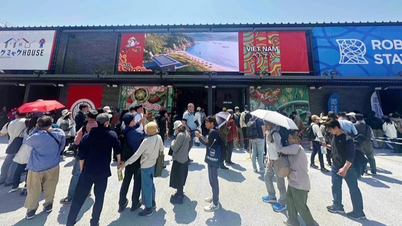

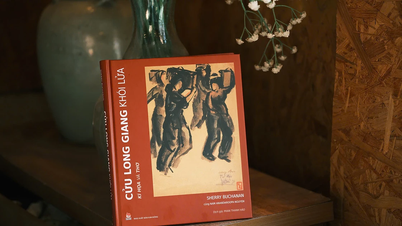
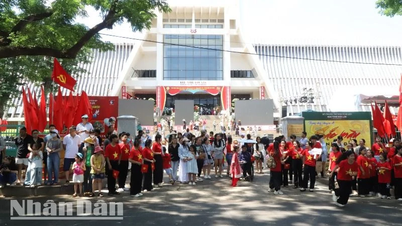
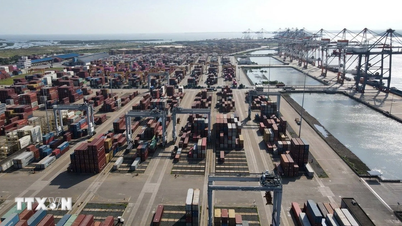





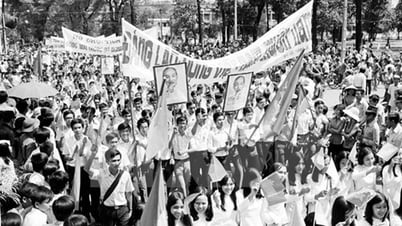




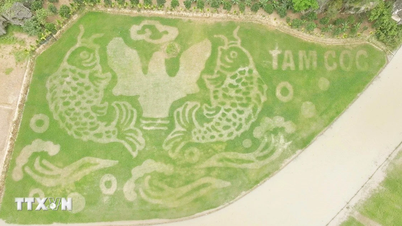











































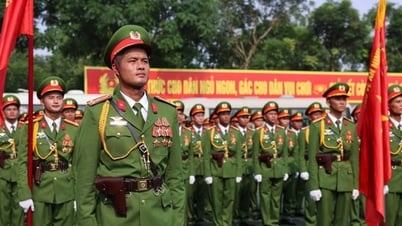

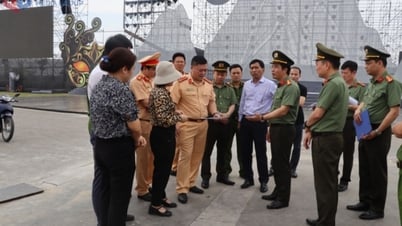





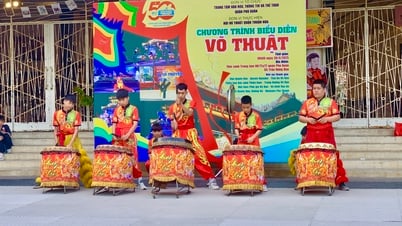
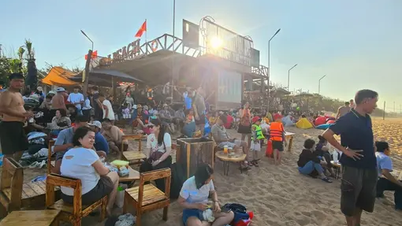











Comment (0)